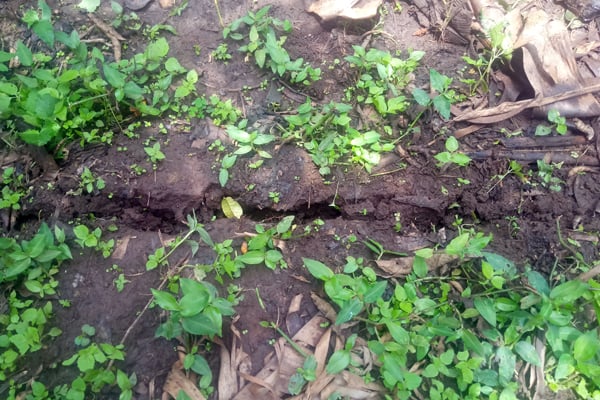Sironko residents vacate river banks to mitigate flooding

Some of the locals who have voluntarily relocated from carrying out farming activities along the river banks of Sironko during a sensitisation meeting on Wednesday. PHOTO | DERICK WENANI
What you need to know:
- This was after the government, through the Ministry of Agriculture, Animal Industry and Fisheries, sensitised locals on proper river bank utilisation and tree planting.
In a significant move to combat flooding and environmental degradation, residents of Sironko District have voluntarily begun vacating river banks to allow restoration efforts.
This was after the government, through the Ministry of Agriculture, Animal Industry and Fisheries, sensitised locals on proper river bank utilisation and tree planting.
Mr Jeremiah Masa, a resident of Industrial Ward, expressed optimism about the project. "We are mostly looking at the dam, which will help us control floods. Vegetable farmers have always been disappointed, but with the irrigation scheme, we'll grow crops without seasons," he said.
Mr Simon Wasukira, 76, General Secretary for the elderly in Sironko Town Council, welcomed the measures.
"We've been making losses from crops washed away by floods. Planting trees along river banks will help," he said.
However, some residents demand compensation for their land, citing livelihood concerns.
Mr Shafiq Mukholi, LC I Chairman of Makhonje Cell, explained, "People have been planting vegetables, sugarcane, and rice to educate their children. They're requesting government support in any form of compensation."
Mr John Woniaye, a resident of Busano Cell, requested alternative land or support.
"This land has been our source of income. We inherited it from our grandfathers. If the government wants us to vacate, they should provide somewhere else to cultivate," he noted.
Mr Nelson Kirenda, Sironko Chief Administrative Officer, emphasised the project's goals.
"We're combating climate change effects, restoring proper river bank utilisation, and providing water for agriculture. The project aims to better people's lives by averting floods and boosting agriculture in the district," he said.
The $76,950 (about Shs283 million) Agriculture Value Chain Development Project, funded by the African Development Bank, aims to improve livelihoods in 28 Ugandan districts. The project focuses on rice, maize, and beef value chains.
"Only locals with land in areas not gazetted as river banks will receive compensation. There's a metraage set by environmental laws that acts as a buffer zone. If people cultivate within this zone, there's no compensation," Ms Kirenda clarified compensation guidelines.




